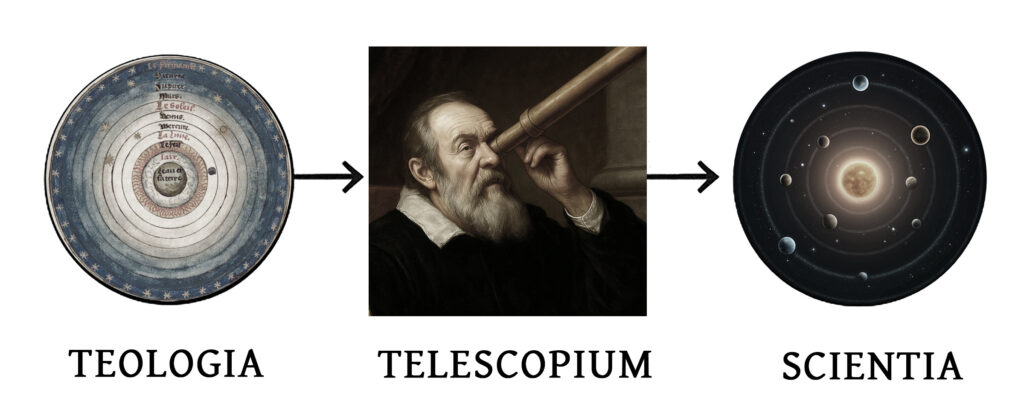The experimental scientific method is a further intellectual mutation, related to the introduction of certain cognitive technologies, particularly observation and measurement tools.
An absolute protagonist in this field is Galileo Galilei, author of several inventions and innovations that led him to overcome the medieval principle of truth based on sacred texts and classical tradition, thus the now millennia-old inertia of alphabetical knowledge.
In particular, he invented what is now known as Galileo’s thermometer, designed a milestone compass, devised a scheme to use a pendulum to set a mechanical clock, which was not effectively implemented until after his death, made significant improvements to the telescope, extending its capacity several times.
Through the application of these technologies in the observation of nature, Galileo became the pioneer of telescopic astronomy and more generally of modern science. The revolutionary nature of his intellectual innovation led him to a clash with the Church, particularly over his opposition to the traditional geocentric system, based on direct observation of the cosmos through new technologies, which he invented or adapted.

The image is released under a Creative Commons Attribution 4.0 International (CC BY 4.0) license. Work by Gualtiero and Roberto Carraro – Homo Extensus. Please quote the authors and link to the original page.

